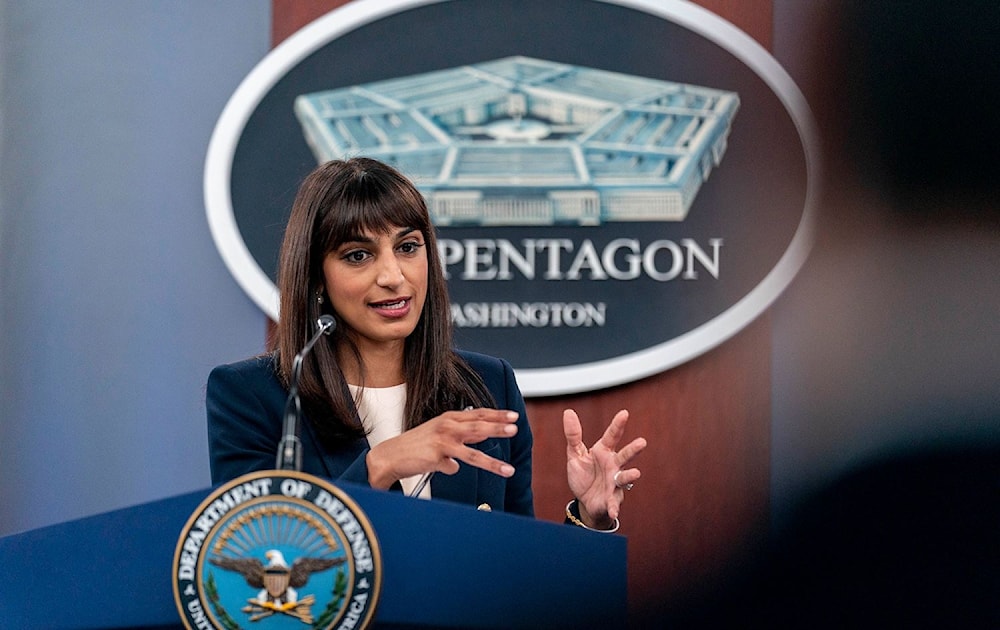Pentagon spox to Al Mayadeen: 'We don't want wider regional conflict'
The spokesperson claims that the United States wants to see "de-escalation of tensions in the region."
-

Deputy Pentagon Press Secretary Sabrina Singh speaks at a news conference at the Pentagon, Virginia, on November 4, 2024. (AP)
The United States does not want things to escalate in the region amid the increasing escalations between Hezbollah and "Israel" on the Lebanese-Palestinian border, Pentagon spokesperson Sabrina Singh told Al Mayadeen's correspondent.
Last week, during a visit to northern occupied Palestine to check on Israeli forces, Prime Minister Benjamin Netanyahu said "Israel is prepared for a strong action in the northern part of the border with Lebanon."
Read more: Israeli military Cmdr urges targeting Lebanon civilian infrastructure
His remarks came as Hezbollah's operations in support of Gaza have turned the majority of northern settlements near the borders into ghost towns, while settlers are blaming the government and military leadership for "abandoning" them.
On Tuesday, US Defense Secretary Lloyd Austin discussed in a phone call with Israeli Security Minister Yoav Gallant the situation on the border with Lebanon and efforts to "de-escalate the tensions."
Asked by Al Mayadeen's correspondent if Washington is concerned about a potential war erupting and if Austin possesses "tools" that he can employ "to prevent further escalations," Singh said that the US is "seeing an increase in activity in the north" but that it does not "want things to escalate into a broader regional conflict."
Read more: North Israeli settlers to 'weep', 'wail' over Hezbollah coming strikes
"We never want to see an escalation of tensions in the region. And we took very specific steps from the beginning with the secretary making that decision and, of course, with the president to have the forward go into the Eastern Med," Singh said.
"We're going to continue to urge for de-escalation. That was something that the secretary spoke with Minister Galant about at length yesterday," the spokesperson said, adding that she will not go into the "specifics of the call itself."
"We don't want to see a wider regional conflict. And that's why we do want to see a de-escalation of tensions in the region," she concluded.

 2 Min Read
2 Min Read








